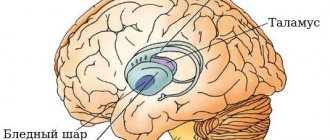Rate delay in speech development (TDSD) is a phenomenon that requires complex diagnostics to make a diagnosis. Many parents do not pay attention to the babbling of a child under three years old. Indeed, all children are different: some mumble incoherently and take a long time to pronounce specific sounds, while others have clear speech. The fact that a baby is silent for a long time is not always a pathology, but it is better to verify this by visiting a specialist.
According to statistics, the deviation is registered in boys 4 times more often than in girls. SRD, or delayed speech development, occurs in 3–10% of children. The disorder affects all components of speech: sound production, vocabulary, phrase grammar and the ability to link words. The ICD-10 code is F 80.
WHAT IS ZRR
Speech development delay (SSD) is a disease characterized by delayed acquisition of oral speech compared to peers.
A feature of the disease can be called underdeveloped qualities and volume of vocabulary, immaturity of expressive speech.
By the age of 2, the baby has no phrases in his speech, and by 3 years there is no coherent speech. With this disease, children need timely correction of RRD. Consultations are carried out by a speech therapist, neurologist, psychologist and otolaryngologist.
ZRR correction
Speech development delays are usually treated by neurologists and speech therapists. In cases where speech delay is due to psychological reasons, a psychologist is involved in the correction.
For example, in the practice of our center there was a case when a neurologically absolutely healthy boy at 3 years old did not speak at all. The reason was psycho-emotional refusal to speak and pedagogical neglect. The family was well off. Mom gave birth to her son at almost 40, and her parenting style was inconsistent. On the one hand, overprotection with a low level of prohibitions and demands. At 3 years old, the child did not attend kindergarten, only “developmental” classes. He was not potty trained and was constantly in diapers (not because he refused to go to the potty, but because his mother did not start training before going to the center). In addition to this, it was revealed that the mother transferred subconscious erotic feelings to the child: she practiced co-sleeping and night breastfeeding (according to WHO recommendations, it is recommended to continue breastfeeding until 2 years. According to psychologists, after 2 years, breastfeeding is negative influences the formation of personality and child-parent relationships, worsens the separation of the child from the mother). At the same time, the boy’s mother stopped having sexual contact with her husband and was preparing for a divorce (she admitted that “she doesn’t need any more men, because now she has a son”). From the outside, this behavior seems quite harmless, because a mother simply sleeps with her three-year-old son, but psychologically this is a very unhealthy environment. In addition, the mother often took it out on the child, since he was “inconvenient”, regularly played pranks and did not obey. Child-parent relationships can be described as an “emotional swing”: from love to hatred one step away (this phenomenon can often be observed in adult couples of a man and a woman). On the one hand, complete indulgence of the child’s whims, his infantilization, on the other hand, the merging of aggression and anger towards him. As a result, the boy developed severe speech and mental development delays. Mom was referred to a psychotherapist.
In order to help a child diagnosed with mental retardation as quickly and effectively as possible, it is recommended to hold a consultation of specialists before starting classes with a speech therapist or speech pathologist. It helps, first of all, to establish the causes of developmental delay, to understand how serious the delay is in the child and whether more complex diagnoses are hidden under it. Does the child take any medications prescribed by a neurologist, what words does he know and use, what is his passive vocabulary, are there any additional diagnoses or abnormalities - all this is important for drawing up a corrective lesson plan. Speech correction in cases of mental retardation is carried out by a speech therapist and a defectologist; less often, a psychotherapist or psychologist works with the child or family.
Ember Center specialists use various techniques in their classes, if necessary:
- Tomatis therapy;
- classes with the Forbrain device;
- speech therapy massage;
- work with speech zones and biologically active points;
- stimulation of brain function through DENAS therapy;
- gaming methods;
- art therapy and much more.
An important component of our methodology is the creation of a favorable environment for the child, the formation of positive motivation for speech. We also pay great attention to the development of gross and fine motor skills, which greatly influence the development of attention, coordination, imagination, and the formation of new neural connections. Our specialists have extensive experience working with children diagnosed with mental retardation and find their own approach to everyone, so that the child comes to classes with pleasure, is not afraid or embarrassed to work on his difficulties, and ultimately copes with the diagnosis to the delight of his parents and loved ones.
REASONS FOR THE APPEARANCE
The causes of delayed speech development are primary reasons - intrauterine development of the child and birth, and secondary reasons - biological and social origin.
| Primary causes | |
| Intrauterine development | Birth of a child |
|
|
| Secondary causes | |
| Biological origin | Social origin |
|
|
During postnatal development, there are 3 critical stages, during which even minor influences of harmful chemical, physical and biological factors can lead to various problems with speech impairment.
- Stage I. Age 1-2 years. There is an active development of cortical speech zones. Adverse effects lead to speech disorders.
- Stage II. Age 3 years. Coherent speech develops. Manifestations of a mutational nature and stuttering are possible.
- Stage III. Age 6-7 years. The critical age period is characterized by “disruptions” of nervous activity, which leads to stuttering and organic brain damage.
SIGNS OF ZRR
The main manifestations of delayed speech development in children under 3 years of age are:
| Age | Signs |
| up to 1 year | The child behaves quietly, babbles little, and has no reaction to sounds or speech. |
| 1.5 years | Does not perceive simple words and names of surrounding objects; does not respond to his name; there is no desire to repeat the words of adults; does not make simple requests, such as “sit down”, “come to me”. |
| 2 years | In speech he uses several words that are always repeated in speech, and sometimes he simply does not speak; attempts to repeat after adults are minimal; cannot perform simple actions (bring/find/show a toy). |
| 2.5 years | Cannot verbally identify surrounding objects and parts of the body; does not perform actions upon request; there are no skills to compose a phrase (for example, from two words), which causes misunderstanding of others. |
| 3 years | There is no personal speech at all (can pronounce memorized phrases or heard, for example, on TV or on the playground); unable to form simple sentences; sounds and words are unclear and blurred; no desire to play with peers; does not understand questions and cannot give an answer; cannot name family members. |
If such distinctive features are detected in a child, it is necessary to contact a pediatrician to establish a diagnosis.
Causes of delayed speech development
The causes of delayed speech development can be divided into organic and psychological. The first group includes disorders during the period of intrauterine maturation, traumatic brain injuries, various infections that affected the development of the child, hearing loss, and neurological problems.
One of the most important psychological reasons that can negatively affect speech abilities is the unfavorable climate in the family in which the child grows and is raised. If he often observes quarrels and swearing, or the child himself is often shouted at, then emotional stress accumulates, which can lead to SDD. Also, disharmonious parenting styles, such as dominant hyperprojection, pedagogical inconsistency and others, can lead to a subconscious refusal to speak. This group also includes severe fear and acute psychological trauma, for example, when a child finds himself in a combat zone.
Another reason for delayed speech development is pedagogical neglect. If there is little communication with the child, they do not involve him in family-role interaction, he often plays cartoons on the computer or gadgets, and does not create an environment for receiving new information, he has no incentive to speak.
Speech does not exist in isolation from the child’s psyche and nervous system. Sometimes parents come to our center with complaints only that the child does not speak, while the development problem lies much deeper. For some children, the diagnosis of RDD will only be initial, and in the future it will be necessary to clarify the structure of the defect, more thorough diagnosis and subsequent correction. For example, those children who, at 2-2.5 years old, were given a conditional diagnosis of “delayed speech development” by neurologists, which only describes the current state of the child’s development, at 3-3.5 years old can be diagnosed with “alalia”, “general speech underdevelopment” (GSD), “autism spectrum disorder” (ASD), and even later – “mental retardation”. This is due to different classifications of disorders (medical and pedagogical), as well as the existing diagnostic system. Making a more accurate diagnosis requires time, various diagnostic procedures and examination of the child by various specialists (neurologist, audiologist, speech therapist, neuropsychologist, psychiatrist). Delayed speech development is a clear sign that the nervous system is not in order, therefore, it is with this diagnosis that the study of the state of the psyche and the level of its development begins.
Of course, not all cases of children with developmental disorders are so severe. Often, by the age of 3-3.5 years, with timely correction, the child “levels out” so that it is impossible to distinguish him from a normotypical child. Considering that speech therapy kindergartens are accepted only from the age of 4, speech therapists from commercial centers are involved in the correction of mental retardation in such children.
A popular question that many mothers ask at the initial consultation: can speech delay be compensated without correction? Spontaneous RRR can be compensated with a successful combination of circumstances and exceptional luck. But the chances are very small. And you can never say for sure what the likelihood of such an outcome is for a particular child.
There is an opinion that if someone in the family spoke late, then this feature can be inherited. This is wrong. Pathology of the nervous system, which leads to speech delay, can be inherited. Therefore, in no case should you wait up to 3 years.
Our center’s specialists recommend not delaying consultation with a speech therapist if the child is not speaking at 2 years of age. Early diagnosis and correction are the key to effectively overcoming speech development delays.
DIAGNOSTICS
In order to determine the etiology (causes and conditions of the disease) of the disease, an integrated approach is required.
Diagnosis of ZRR includes:
- Study of life history, medical history and residence with relatives.
- Conducting a physical examination: external examination, palpation, percussion, auscultation. Hearing, vision, and motor skills of facial muscles are assessed.
- A conversation is held with parents about the manifestation of symptoms: when the first manifestations appeared, the possibility of influence of surrounding factors, including within the family.
In parallel with the general diagnostics of the reproductive system, examinations such as:
- ECG.
- MRI.
- EchoEG.
- Duplex scanning of the arteries of the head.
The examination involves a speech therapist, psychologist, psychiatrist, neurologist and otolaryngologist.
What is PVD in children? Treatment of ZPRR in Saratov, Russia
ZPRD is a delay in psycho-speech development in children ( delayed psycho-speech development ). With ZPRD, both mental development delay and speech development delay are observed. Sarklinik provides treatment for cervical cancer in Russia , treatment for cervical cancer in Saratov . Diagnosis, correction, overcoming, complex treatment of mental retardation and developmental rates activate both the mental and speech development of the child. ZNPRR is a delay in neuropsychic-speech development, or a delay in neuropsychic development.
At the first consultation, the doctor will tell you what the diagnosis of SPR in children is, autism, what are the signs of SPR, symptoms of SPR, how treatment for SPR is carried out in Saratov, Moscow, St. Petersburg, China, in Russia, how to cure SPR with autistic traits , in including ZPRR on a residual organic background .
TREATMENT
The amount of work when correcting children with developmental disabilities is determined by the reasons that caused the delay in speech development. First of all, parents should take care of organizing a comfortable and favorable environment to stimulate speech development.
Full treatment includes:
- Taking medications. It is very important that all medications are strictly prescribed by your doctor. Self-medication is simply dangerous. The drug that helped your friend’s baby may be contraindicated for your child. Remember this and don't take risks.
- Physiotherapy, electroreflexotherapy and magnetic therapy restore the functioning of different parts of the brain that are responsible for diction, vocabulary, speech activity and intellectual abilities.
- Alternative methods of treatment: hippotherapy (horseback riding), dolphin therapy, etc. Such methods of correcting the developmental disorder are selected individually.
- Pedagogical correction. A speech pathologist will ensure correction of negative developmental tendencies and learning difficulties. Practical and visual means of rehabilitation are used. All classes are conducted in a playful manner according to an individual plan.
- Speech therapy massage of the tongue, lips, cheeks, earlobes.
CLASSES WITH A Speech Pathologist AT ZRR
Simultaneously with medical procedures and the active participation of the family in the rehabilitation process, it is necessary to conduct classes with a speech therapist for mental retardation for the proper development of speech and cognitive processes.
In early childhood, speech therapy classes pay special attention to:
- Development of fine motor skills.
- Mobile and finger games.
- Modeling, drawing, designing, appliqués.
- Didactic games: speech therapy lotto, games and exercises for speech development.
- Development of passive and active vocabulary.
- Formation of coherent speech.
Work on the correction of children with developmental disabilities is built in stages “from simple to complex.” Thus, expressive speech exercises begin with sound pronunciation, followed by syllables and simple words. Only after mastering these stages does the transition to phrases and sentences begin.
Such activities go well with physical exercise. There is an impact on the development of motor skills, and the material is absorbed faster.










